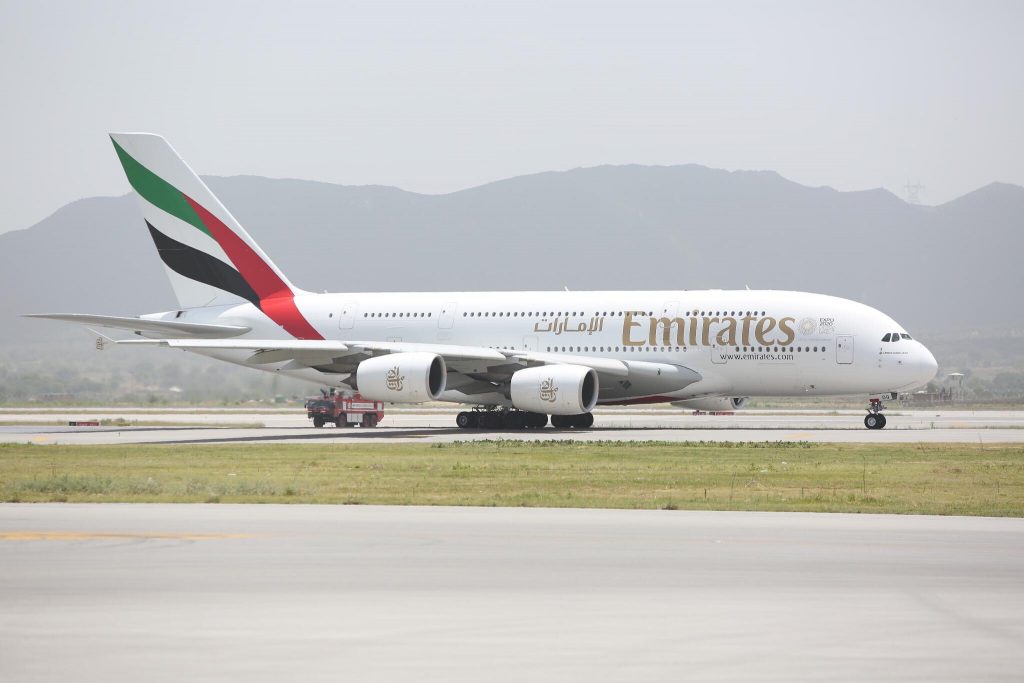Emirates has announced adjustments to its operational schedules in 2019. This adjustment is done to minimise the impact of global travel demand trends. It also coincides with the closure of Dubai International Airport’s Southern Runway in April and May 2019. Flights to Pakistan will also be drastically cut to accommodate these changes. It is important to note that economic conditions, pilot shortages and changing dynamics are forcing Emirates and other Gulf airlines to review their operations.
Emirates is already serving Karachi, Lahore, Islamabad, Peshawar and Sialkot with its Boeing 777 fleet. It codeshare partner Flydubai flies to Faisalabad, Multan, Karachi, Quetta and Sialkot. The impact on flights to Pakistan will be.
- Emirates planning to stop Multan Dubai flights
- Why Emirates A380 at IIA isn’t a good omen for Pakistan aviation.
Dubai – Islamabad flights will be reduced from 11 to 7 weekly, EK614/615 (4 weekly) closed for booking.
Dubai – Karachi flights will be reduced from 35 to 23 weekly. Following flights closed for booking.
EK606/607 Day x3 (Day x4 from KHI)
EK602/603 Day x257
EK604/605 Day 27 (from 21APR19)
Dubai – Lahore flights will be reduced from 10 to 9 weekly, EK624/625 closed for booking on Day 1.
Dubai – Multan 4 weekly flights are already cancelled, but Emirates continue to serve the destination via its codeshare partner Flydubai.
Dubai – Sialkot daily service is also cancelled, but Emirates continue to serve the destination via its codeshare partner Flydubai.
Dubai – Peshawar flights will be reduced from 5 to 3 weekly.
According to industry insiders, it is quite possible that from the third quarter of 2019 Emirates might cut services to Multan, Sialkot and even Peshawar by leaving its codeshare partner Flydubai picking its load and serve as a feeder airline.
The impact to the international destinations affecting Pakistani passengers are:
Dubai – London Gatwick flights are reduced from 3 to 2 daily, EK011/012 closed for booking.
Dubai – London Heathrow flights are reduced from 42 to 31 weekly. Following flights closed for booking
EK031/032 Day x356
EK029/030 Daily
Dubai – London Stansted flights will be reduced from 7 to 4 weekly.
Dubai – Madinah will now be served by 1 daily flight instead of 2.
EK807/808 Day x457 (From 17APR19)
EK809/810 Day 457
Dubai – Manchester flights will be reduced from 3 to 2 daily, EK021/022 closed for booking.
Dubai – Newark the non-stop sector is cancelled, EK223/224 closed for booking instead Dubai to Newark via Athens maintains 1 daily flight.
Dubai – New York JFK flights will be reduced from 14 to 12 weekly, EK203/204 closed for booking on Day 35.
On the other hand, some routes that Pakistani travel will see improvement of equipment. Emirates’ customers travelling to Boston will be able to experience airline’s Airbus A380. Emirates’ A380 will operate to Boston between 01 June and 30 September 2019 and between 01 December 2019 and 31 January 2020 to accommodate the increased seasonal demand in travel to the US East Coast.
Emirates will fly its flagship double-decker aircraft to Scotland for the first time between 16 April and 31 May 2019. The Emirates A380 daily service, with a total capacity of 489 seats, will replace the double daily Boeing 777-300ER service during the Dubai Airport Runway closure. From 1 June 2019 until 30 September 2019, Emirates will resume operating a double-daily service to Glasgow with one daily Boeing 777-300ER and one Airbus A380, offering additional capacity to meet increased travel demand during the summer season.
Sir Tim Clark, President Emirates Airline, said: “we are agile in deploying our aircraft to destinations where it best serves customer demand. The changes we are implementing to our network schedules in 2019 are in line with this approach, taking into consideration global market dynamics and operational limitations including the maintenance work on Dubai Airport’s Southern Runway.”
This whole reshuffle will result in up to 48 Emirates aircraft not being utilised, with a 25% reduction in the overall number of flights operated by the airline during the 45-day period. It will also allow the airline to reevaluate its operational demands vs challenges. And if Pakistani airlines will readjust their schedules to take advantage of this situation.

